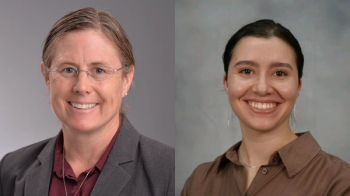
Gulf Coast Conference: Kevin Schug Discusses Predicting Gas Phase Vacuum Ultraviolet Spectra
At the 2023 Gulf Coast Conference, Spectroscopy spoke with Kevin Schug of the University of Texas at Arlington, about predicting gas phase vacuum ultraviolet spectra using machine learning. This interview was one of four conducted live at GCC 2023.
Schug spoke during the 2023 Gulf Coast Conference (GCC) in Galveston, Texas, with one of his lectures being titled, "Prediction of Gas Phase Vacuum Ultraviolet Spectra using Machine Learning."
Kevin A. Schug is a Professor and Shimadzu Distinguished Professor of Analytical Chemistry at the University of Texas at Arlington. He received his Ph.D. from Virginia Tech working with the late Professor Harold McNair. He earned a B.S. Chemistry from the College of William and Mary. He has been at the University of Texas at Arlington since 2005.
Spectroscopy sat down with Hagemann to discuss the following questions:
- Can you give us a brief overview of the work you'll be presenting today (00:16–01:24)?
- Why do you believe machine learning to be useful in predicting gas phase vacuum ultraviolet spectra (01:25–03:20)?
- What more research can be done in this space (03:21–04:57)?
- What is the most exciting or interesting part of this research for you (04:58–05:52)?
- Is there anything we're not asking you that you think would be interesting for viewers to know (05:53–06:49)?
- Are there other presentations you are/were excited to see here at GCC (06:50–07:59)?
- What makes GCC significant for the next generation of separation scientists (08:00–09:04)?
Our interview with Schug was one of four conducted live at GCC 2023. For the other published GCC interviews, click on the links below:
Newsletter
Get essential updates on the latest spectroscopy technologies, regulatory standards, and best practices—subscribe today to Spectroscopy.




